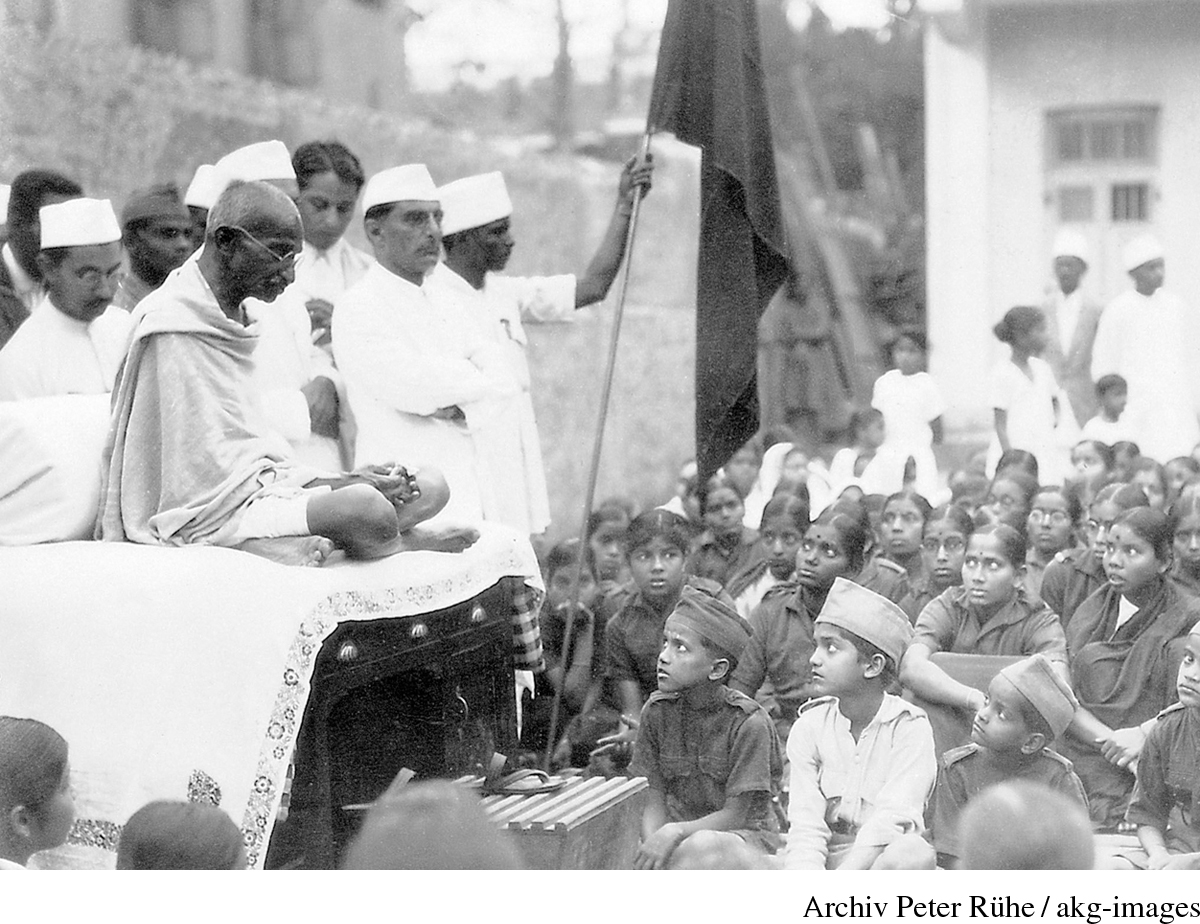The Great Depression beyond the West
The Great Depression beyond the West
The depression spread discontent in European empires. World War I and postwar investment had produced economic growth, a rising population, and explosive urbanization in Asia, Africa, and Latin America. The depression, however, cut the demand for copper, tin, and other raw materials and for the finished products made in urban factories worldwide. Rising agricultural productivity drove down the price of foodstuffs like rice and coffee, a disaster for colonial peoples who had been forced to grow a single cash crop. Just as in Europe, however, the economic picture in the colonies was uneven. For instance, established Indian industries such as the textile business gained strength, with India no longer needing British cloth.

Economic distress led to anticolonial action. Colonial farmers withheld produce like cocoa from imperial trade, and colonial workers went on strike to protest the wage cuts imposed by imperial landlords. In India, millions of working people, including hundreds of thousands of veterans, joined with the upper-class Indians, who had organized to gain rights from Britain in the late nineteenth century. Mohandas K. Gandhi (1869–1948), called Mahatma (“great-souled”), emerged as the charismatic leader for Indian independence. Trained in England as a Western-style lawyer, Gandhi preached Hindu self-denial and rejected British love of material wealth. He wore simple clothing made of thread he had spun himself and advocated civil disobedience—deliberately but peacefully breaking the law—a tactic he claimed to have taken from the British suffragists and from the teachings of spiritual leaders like Jesus and Buddha. Gandhi aimed to end Indian deference to the British, who jailed him repeatedly and tried to split the Indian independence movement by promoting Hindu-Muslim antagonism. Instead, commitment to independence in India grew.
The end of the Ottoman Empire following World War I led to efforts to build modern, independent nations in the Middle East. Mustafa Kemal (1881–1938), who later took the name Atatürk (“first among Turks”), led the Turks to found an independent republic in 1923 and to craft a capitalist economy. In an effort to Westernize Turkish culture and promote the new Turkish state, Kemal moved the capital from Constantinople to Ankara in 1923, officially changed the name Constantinople to the Turkish name Istanbul in 1930, mandated Western dress for men and women, introduced the Latin alphabet, and abolished polygamy. In 1936, Turkish women received the vote and were made eligible to serve in the parliament. Persia, which changed its name to Iran in 1935, similarly loosened the European grip on its economy by updating its government and by forcing the renegotiation of oil contracts to keep Western countries from taking the oil for virtually nothing.
REVIEW QUESTION How did the Great Depression affect society and politics?
Anticolonial activism thrived in French colonies, too, but the government made few concessions. Like all other imperial countries during the depression, France depended increasingly on the profits it could take from its empire; therefore, its trade with its colonies increased as trade with Europe lagged. France also depended on the growing colonial population for sheer numbers. One official estimated what colonial numbers meant for national security: “One hundred and ten million strong, France can stand up to Germany.” Ho Chi Minh, founder of the Indochinese Communist Party, rallied his people to protest French imperialism, but in 1930 the French government brutally crushed the peasant uprising he led. Needing their empires, Britain and France increased the number of their troops stationed around the world. As a result, fascism spread largely unchecked in Europe during the 1930s.